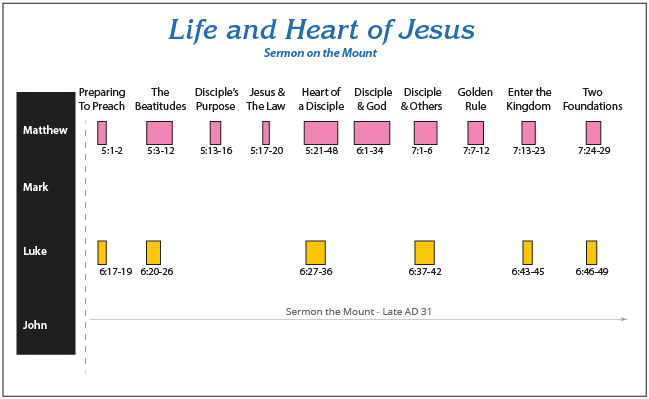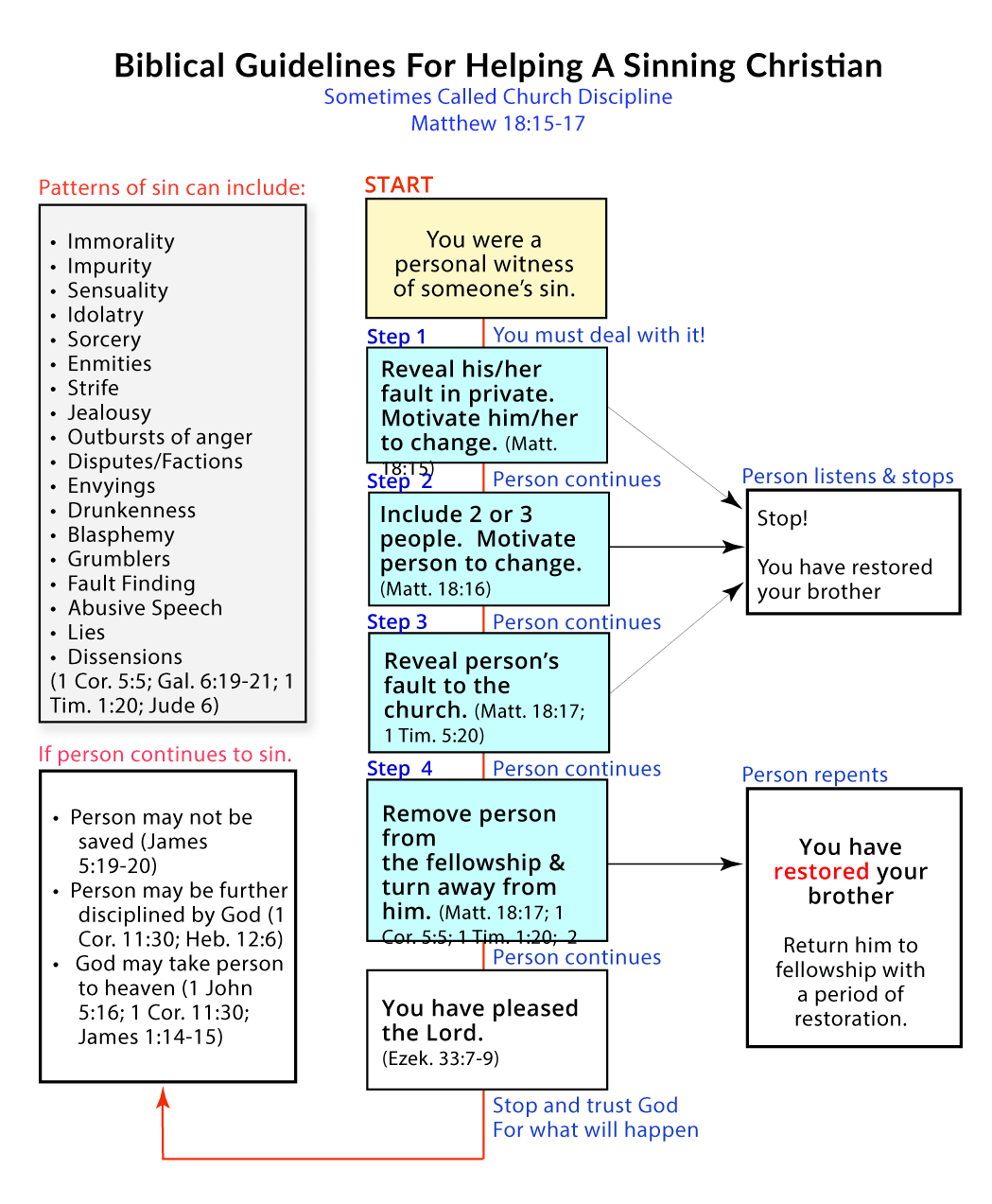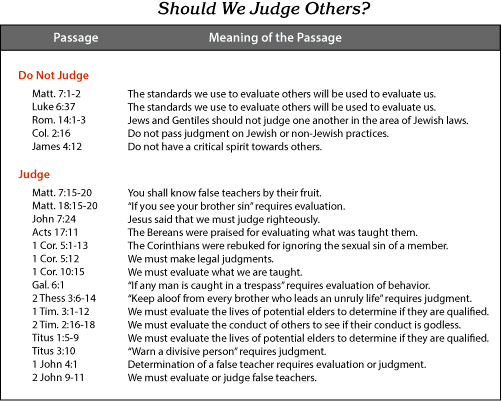
Someone once said that the opening verse of this study is now the most quoted passage in the Bible and not John 3:16. The opening verse of our passage is Matthew 7:1, “Do not judge so that you will not be judged.” (NASB). This passage is very popular! It is not unique to just one culture. Let me illustrate. There is a Japanese proverb which states, “Search seven times before you suspect anyone.” Confucius is quoted as saying, “It is not the failure of others to appreciate your abilities that should trouble you, but rather your failure to appreciate them.” The famous Rabbi Hillel of Jesus’ time said, “Judge not your friend until you have stood in his place.” There is an American Sioux proverb that says, “Before I judge my neighbor, let me walk a mile in his moccasins.” An Arabian proverb reads, “Examine what is said, not who speaks,” and Mother Teresa said, “If you judge people, you have not time to love them.” No one likes to be judged. We are all familiar with judgmental people. We are familiar with our own failings in judging people unfairly and harshly. Everyone judges others. It is like drinking water. We all do it. Our study is from Matthew 7:1-6 and Luke 6:37-42.
Harry Ironside Illustration
Dr. H. A. Ironside was a famous preacher. He was a man Dr. J. Vernon McGee highly respected and desired to be like. Those who knew Dr. Ironside well, said that he would tell the following account about himself. Dr. Ironside had decided to travel on a cruise ship from the United States to Europe. When he arrived on board, he discovered that he would be sharing a stateroom with another man. After meeting the man, Dr. Ironside felt uncomfortable about leaving any of his valuables in the room. He did not trust the man. Consequently, he took his valuables to the office onboard the cruise ship and explained to the steward why he wanted to leave his possessions in the ship’s safe. The steward agreed to do that, and then told Dr. Ironside before he left that the other man had been there only minutes before Dr. Ironside arrived and wanted to leave his valuables for the same reason.
Both men had quickly judged the other person and had come to the wrong conclusion. But that is usually what we do. We look at someone, hear him, and make a quick evaluation.
Lady At The Airport
This is another true story. It is about a woman who went to an airport early to catch her flight. She came with a book and a package of cookies. After she arrived at the gate for her flight, she sat down and settled in to read her book. After a while a man sat down two seats away, leaving one seat between them. After awhile she noticed that the man was fumbling to open a package of cookies. He eventually opened it, took one, and ate it. She was stunned that he would be eating her cookies. So she decided to not say anything and quickly took the next cookie so that he did not eat them all. After a few minutes he took another one, and then she quickly took another. She was irritated but said nothing. This continued until one cookie was left. Then he broke it in half and ate one half. Now she was really upset that he did not leave the last for her. After a while he left. Eventually, she boarded her flight, arrived at her seat, and after sitting down reached into her purse to get a tissue. Then she discovered that her package of cookies was still in her purse. She felt terrible. She realized that she had been too quick to judge the man. She had eaten his cookies and he had kindly and graciously shared his cookies, including his last one, without saying a word.

Our Response
Dr. H. A. Ironside and the woman at the airport were both judgmental. We identify with both situations. We have judged others unfairly too! We have been judged unfairly also! When we know that we have been judged unfairly, it hurts and we are offended. Our response to our hurts is not unexpected. We may respond by saying unkind words, complaining, or demeaning the person to others. We ignore the following proverb,
He who conceals hatred has lying lips, and he who spreads slander is a fool. Proverb 10:18 (NASB)
According to Proverbs we are fools when we slander the one who offended us. We also speak evil about another person ignoring Titus 3:2.
. . . malign no one, to be peaceable, gentle, showing every consideration for all men. Titus 3:2 (NASB)
Gossip can be a sophisticated form of slander. One can hide the hatred of the soul by sharing “important information” that others “need to know.” We can pretend to care about someone while we enjoy sharing the bad news. It is difficult to know if someone’s heart is pure or cunning when he or she is speaking about another person. Gossip often occurs when hatred is in the heart. God has said that love covers a multitude of sins (1 Peter 4:8), and hurts too!
R. G. LeTourneau, owner of a large earth-moving equipment company, told this story. “We used to have a scraper known as the model ‘G.’ Somebody asked one of our salesmen one day what the ‘G’ stood for. The salesmen, after thinking a few seconds, replied, ‘Well, I guess the ‘G’ stands for gossip, because like gossip, this machine moves a lot of dirt and moves it fast.'” [1]
What is gossip? Gossip has been defined as personal or sensational facts that are shared about another person. It is usually hurtful and designed to damage the reputation of another person. The Greek word translated as “gossip” refers to “harmful information about a person.” Sometimes it can refer to “harmful information that is not widely known.” Sometimes gossip occurs because a person enjoys talking about the sensational, and does not stop to think about the impact of what they are sharing. Anger or hatred can also motivate gossip.
Sometimes when we are hurt, our judgment of the offending party is quick and brutal. We are looking for faults, and we become easily offended. Have you ever rejoiced when something bad happened to that party? Recently, I read Proverbs 24:17-18 and discovered something that I had never noticed before. I had read the passage before but never noticed an important truth. Here is the passage,
Do not rejoice when your enemy falls, and do not let your heart be glad when he stumbles; or the LORD will see it and be displeased, and turn His anger away from him. Proverbs 24:17-18 (NASB)
The passage is amazing. God warns us that if we rejoice because our enemy is hurt, then He will withhold His judgment from that person. God does not want us to be happy when others get hurt. God wants us to love them and pray for them (Matthew 5:43-44). He does not want us to rejoice when trouble falls on them.

Judge, Judge & Judge
Jesus’ next statement causes us to stop and think.
Do not judge so that you will not be judged. For in the way you judge, you will be judged; and by your standard of measure, it will be measured to you. Matthew 7:1-2 (NASB)
The actual Greek wording in the second verse is fun. The English word misses Jesus’ play on words. The literal Greek reads as follows,
For with the judgment you are judging, you will be judged; and with the measurement you are measuring, you will be measured. Matthew 7:2
Notice that Jesus repeats the idea that the criteria we use to evaluate others will be used to evaluate us. The same idea is repeated in Romans 2:1-3.
The Greek word translated as “judge” or “judged” comes from the root word krino It means “to analyze,” or “to evaluate.” That is, “judge” does not mean to condemn another person. It refers to the evaluation of another person or thing. The gospel of Luke reveals that Jesus had included more in His comment than what Matthew records. In Luke 6:37 we are told that Jesus added, “do not condemn, and you will not be condemned; pardon, and you will be pardoned.” The root Greek word that is translated as “condemn” is katadikazo and its basic meaning is to conclude that someone is guilty. It also has the idea of determining the punishment that the person deserves. This verse reinforces the message of Matthew 7:1-2. Jesus is telling us to not only avoid being judgmental, but also to avoid being jury and judge. We are to be very slow in concluding that someone is guilty and then determining how they are to be punished. More importantly, Luke says that we are to have an attitude of pardoning others. We are to be merciful as our God is merciful. In the following verses God teaches us to be merciful rather judgmental.
The Lord is gracious and merciful;
Slow to anger and great in lovingkindness.
The Lord is good to all,
And His mercies are over all His works.
Psalm 145:8-9 (NASB)
Blessed are the merciful, for they shall receive mercy. Matthew 5:7 (NASB)
Be merciful, just as your Father is merciful. Luke 6:36 (NASB)
We are to be quicker to pardon than to conclude and insist that someone deserves a certain punishment.
Do not judge, and you will not be judged; and do not condemn, and you will not be condemned; pardon, and you will be pardoned. Luke 6:37 (NASB)
Also, notice that Luke 6:38 gives us another statement of Jesus that Matthew does not record. It emphasizes the principle of mercy.
Give, and it will be given to you. They will pour into your lap a good measure — pressed down, shaken together, and running over. For by your standard of measure it will be measured to you in return. Luke 6:38 (NASB)
Sometimes, this verse is used to teach that we need to give money if we want to receive money. Or, if we want to get rich, then we should give greatly. But Jesus’ concluding sentence in this verse reveals that is not what He is teaching. How often the last sentence is ignored. Jesus’ opening statement just refers to a common human practice. When someone gives something to us, most individuals want to give them something in return. Also, if you give much then you receive much from others. That is the meaning of the statement, “They will pour into your lap a good measure — pressed down, shaken together, and running over. “ Now notice the last sentence. Now Jesus says, “. . . by the standard of measure it will be measured to you in return.” Two Greek words, metron and antimetreo, are translated as “standard” and “measure.” Both have the idea of a measured volume. Therefore, when He said “by your standard” Jesus meant that by the amount of your mercy or absence of mercy that you give to another person, that is how much you will receive. So, if you do not show mercy, then you do not receive mercy; and if you show little or no mercy, then you should expect to receive little or no mercy. The reason that Jesus is teaching about mercy is that many men and women are not willing to show mercy. They are quick to find others guilty and independently determine the punishment they should receive.
The same idea is repeated in Romans 2:1-3. So we must ask, “Does Jesus mean that we cannot evaluate other people?” Are we prohibited from evaluating the lives of other people? The answer is, “No!” We are not prohibited, but in fact, we will discover in the next verses in Matthew and from the gospel of Luke that Jesus will give us guidelines for evaluating others. We will also discover that we must be very careful when we do evaluate others. Jesus will use two illustrations in Matthew and two illustrations in Luke.
Blind Men Illustration
The gospel of Luke 6:37-45 includes another statement that Jesus made that is not included in Matthew. The Luke illustration is about two blind men.
And He also spoke a parable to them: “A blind man cannot guide a blind man, can he? Will they not both fall into a pit?” Luke 6:39 (NASB)
This illustration and the next one in Luke prepares us for the main illustration that appears in both Matthew and Luke. This illustration about two blind men is obvious. Normally, people who can see guide people who cannot see with their eyes. As a result, blind people do not fall into pits or holes in the ground because someone who can see wisely guides them. Therefore, when Jesus says that one blind man cannot guide another blind man so that he does not fall into a pit, the point that Jesus is making is that if you want to guide a sinning person, then you should not be guilty of the same sin. How can spiritually blind people guide spiritually blind people? Someone who is trapped in a sin cannot guide another person who is also trapped in the same sin.
Yet, that is what happens all the time. Addicts are supposedly experts in counseling other addicts to help them not be addicts any longer. Divorced counselors are supposedly wise enough to help struggling couples save their marriage. Spiritually blind pastors are supposedly competent spiritual counselors. On goes the list of the spiritually blind supposedly being wise enough to guide other spiritually blind men and women.
Now suppose that you observe someone exploding in anger. Then you decide to confront that person over anger. That sounds spiritual and honorable. You want to help them. But Jesus’ point is that if you have a problem with anger too, then you are just as spiritually blind as the one who exploded first in anger. How can you guide that person to repentance or help them not commit the sin of anger again? If you want to be their guide, then you need to get right with God and achieve victory over your sin, first.
Teacher-Pupil Illustration
The next illustration in Luke also prepares us for Jesus’ main illustration in Matthew.
A pupil is not above his teacher; but everyone, after he has been fully trained, will be like his teacher. Luke 6:40 (NASB)
Once again, the concept is simple. A pupil is one who learns and a teacher has greater knowledge and, supposedly, more wisdom. The message of this illustration is similar to the previous one. In the previous illustration, if you are the one who plans to help another not sin, then Jesus challenges you to make sure that you are not spiritually blind. In this illustration, if you help someone with a spiritual issue, then be a spiritual teacher. Seek to help and not condemn them. That is the message of Galatians 6:1.
Brethren, even if anyone is caught in any trespass, you who are spiritual, restore such a one in a spirit of gentleness; each one looking to yourself, so that you too will not be tempted. Bear one another’s burdens, and thereby fulfill the law of Christ. Galatians 6:1-2 (NASB)
Here the Holy Spirit tells us to be spiritual, gentle, watch ourselves and help the other person. We are to be spiritual teachers.
Carpenter’s Illustration
The next two verses in Luke 6 presents the same illustration that appears in Matthew 7:3. It is taken from a carpenter’s shop.
Why do you look at the speck that is in your brother’s eye, but do not notice the log that is in your own eye? Or how can you say to your brother, “Let me take the speck out of your eye,” and behold, the log is in your own eye? You hypocrite, first take the log out of your own eye, and then you will see clearly to take the speck out of your brother’s eye. Matthew 7:3-5 (NASB)
The Greek word translated as “speck” is karphos. It refers to a “splinter” or “speck,” a thin piece of wood that might get stuck into one’s finger. Jesus was a carpenter and this illustration would have been familiar to Him. If a splinter of wood got into someone’s eye, such as could happen in a carpenter’s shop, the person might need help in order to get it out. But it would be a mistake if someone tried to help who had a log in his own eye that prevented him from seeing clearly.
Did you notice Jesus’ words, “see clearly to take the speck out”? That requires an evaluation of the person’ eye in order to find the speck and remove it. It requires evaluation, or judgment. Jesus’ illustration teaches that we can evaluate or make a judgment. Jesus’ statement, “Do not judge so that you will not be judged” was not a prohibition against making judgments about or evaluating people.
The key part of Jesus’ carpentry illustration is the logs in our own eyes. In John 7:24, Jesus made this comment to a crowd,
Do not judge according to appearance, but judge with righteous judgment. John 7:24 (NASB)
Jesus taught them how to make good judgments. We are not to be like Dr. H. A. Ironside who made a judgment according to appearance. Instead, we are to judge with righteousness. That is, we are to judge fairly. Nicodemus added this in John 7:51,
Our Law does not judge a man unless it first hears from him and knows what he is doing, does it? John 7:51 (NASB)
That is, we must talk with the person to understand his perspective – to obtain all of the facts. The lady at the airport should have spoken to the man and obtained all of the facts. Then she would have discovered the truth and had a different opinion about the man. The carpenter’s illustration about the splinter and log tells us how to judge others. We are to do it with God’s righteousness – with holy fairness. The log in the eye represents personal sin.

Helping A Brother Or Sister
In order to remove the splinter of sin in another person’s life, we need the log of sin removed from our own life first. Galatians 6:1tells us that a person needs to clean up his or her life before he/she can help someone else who is in sin.

Brethren, even if anyone is caught in any trespass, you who are spiritual, restore such a one in a spirit of gentleness; each one looking to yourself, so that you too will not be tempted. Galatians 6:1 (NASB)
First, we need to deal with any sin in our life – the log. Then we can help someone else who is not dealing with the sin in their life – the splinter. Notice that the Holy Spirit says, “. . . you who are spiritual . . .” Anyone who has confessed their sins and prayerfully approaches the person with the “splinter in the eye” with the goal of restoration and not condemnation is qualified.
Matthew 18:15-17 provides detailed guidelines. First, we are to go in private to the person who sinned – not telling everyone first. If he or she will not listen, then we must visit again with two or three witnesses. The goal is to speak kind words and encourage him or her to repent. The purpose is not to condemn, argue, make one feel bad, or speak evil. The goal is to show Christ’s love and encourage the person to stop sinning. It is a call to repent. If he or she will not listen, then we must tell the leaders of the church and let them take it from there
The goal is not to be judgmental. The goal is to listen (John 7:51) and to evaluate the person’s actions righteously. The goal is restoration while protecting his or her reputation. The goal is to win him or her.
Dogs & Pigs
Jesus’ next two illustrations are about a dog and a pig.
Do not give what is holy to dogs, and do not throw your pearls before swine, or they will trample them under their feet, and turn and tear you to pieces. Matthew 7:6 (NASB)
Do not give what is holy to dogs! That requires evaluation or judgment in order to determine who is a dog or a pig! Do not throw your pearls before swine, or pigs! That also requires evaluation or judgment! Notice that we cannot fulfill Jesus’ commands without passing judgment or making an evaluation of others. Matthew 7:1-6 is about righteous judgment. Jesus never prohibited us from judging someone. But He did tell us to do it righteously – fairly.
Now what did Jesus mean by “dogs” and “pigs”? Today many people have dogs as pets, but the Jews did not like dogs and they did not like pigs. Dogs and pigs were regarded as filthy or unclean animals. The dogs and pigs represent those who are in sin – those who have splinters in their eyes.
What did Jesus mean by “do not give what is holy”? What does He mean by “holy”? What does He mean by “pearls”? There are a variety of opinions. Some say the pearls refer to the Word of God. Some say that the “holy” refers to meat offered on the temple altar. But Jesus does not explain the meaning of these words, and ultimately it really does not matter what the words actually mean. What is clear is that some people do not want the splinter removed. They want the splinter. Then we must stop giving what we consider to be “holy” and what we consider to be “pearls” to dogs and pigs. We must stop giving our best to help someone.
Conclusion
Several years ago I was driving near Washington D.C. and listening to a preacher on the radio. He turned to Matthew7:1 and proceeded to tell the radio audience that Jesus wanted us to stop judging others. He apparently never realized that Jesus’ illustrations about the splinter and the log in the eye or the dogs and pigs and the holy things and pearls require that each person evaluate another’s life. Jesus was talking about helping people who had problems. Jesus was also talking about righteous or fair judgment. He never explained that Jesus was talking about a righteous evaluation and that at some point one might need to stop, if the person was not interested in being helped.
The recorded words of Jesus are consistent with the words that He had His disciples write throughout the New Testament. He has called us to deal with the logs in our own eyes too! Are there any logs in your eye? Are you confessing your own sins? Are you loving and praying for your enemy or those who irritate you?
What Is Love!
It’s silence when your words would hurt.
It’s patience when your neighbor’s curt.
It’s deafness when the scandal flows.
It’s thoughtfulness for another’s woes.
It’s promptness when stern duty calls.
It’s courage when misfortune falls. [2]
References:
[1] Hodgin, Michael. 1001 Humorous Illustrations. Zonderan Publishing House. 1994. p. 169.
[2]Green, Michael. Illustrations for Biblical Preaching. Baker Book House. 1989. p. 225.